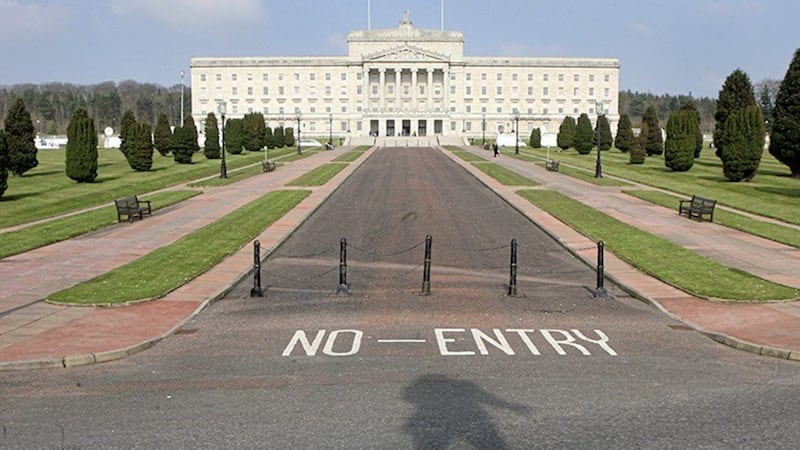Our experience of elections here has made us familiar with the American concept of groundhog day. It refers to the tedious repetition of events which happen regularly in a similar way, usually with the same outcome.
In the past 25 years we have had seven Westminster elections, six for the assembly, five to the European Parliament and six for local councils. So we have voted 24 times, an average of about once every year (more frequently if you include four by-elections and two referendums).
In that context it is difficult to avoid being overwhelmed with indifference at the prospect of another assembly election in May which, we are told, will be of earth-shattering importance. This is unlikely, since the past 24 elections have made little difference to ordinary people, apart from making their lives worse.
For example, in 2003 there were 13,000 households on the social housing waiting list in acute need. By 2020 (19 elections later) that number had risen to almost 30,000. So every time we voted, those in acute housing need increased by almost 1,000 households. No matter who topped the poll, the losers were always those at the bottom of society.
The total number of households waiting for social housing rose from 38,000 to 45,000 in the past three years. There are now twice as many families with children in the privately rented sector (where they can be asked to leave within four weeks) than in social housing. So what was the point in all those elections?
The answer is that our voting is not based on normal politics and therefore not related to the lives of ordinary people. Politics here is part of the entertainment industry. While there is a disconnect between elections and government policy in many societies, our parties’ obsession with sectarian triumphalism means that they do not have to do anything to retain power.
The 82 MLAs who are in government parties will disagree. However, they might remember that in January 2019, when they were absent from Stormont, 2,433 children were in temporary accommodation.
By August 2021, eighteen months after they returned, that number had increased to 3,596. New Decade, New Deal? No, just the same old deprivation.
When the SDLP captured the Westminster Foyle seat from SF, did the price of gas or food come down? Did electricity or school uniforms become cheaper when SF replaced the DUP in North Belfast?
The Andersonstown charity, Foodstock, provides over 300 weekly food parcels and it delivered 350 Christmas dinners to the needy last week. So does it matter that a Sinn Féin MP has held the West Belfast seat for 25 years, or that it has four MLAs there?
Is it important that the DUP has held East Belfast since 2015, when the Dundonald Foodbank distributed 1,100 three-day emergency food supplies last year? Do the hungry or homeless care who their MP is?
Our politicians are migrating towards a situation where the state no longer accepts responsibility for the welfare of its citizens. So why vote? The five main parties are in a compulsory coalition, so no matter which of them you vote for, you will almost certainly get the same government. (Buy one, get four free.)
When we marched in the civil rights movement for the right to vote in local elections over 50 years ago, we did not realise the day would come when we would have difficulty finding a party worth voting for.
It is a pattern reflected in South Africa, for example. There, 63 per cent of children under six live in poverty and 3,500 adults own more than the poorest 32 million. They ended racial apartheid, but social and economic apartheid lives on.
Until our elections are contested for a non-sectarian system of government and fought on the basis of social and economic issues, we will never create a fair society here.
This is unlikely to happen any time soon. In the meantime, welcome to another groundhog year.









